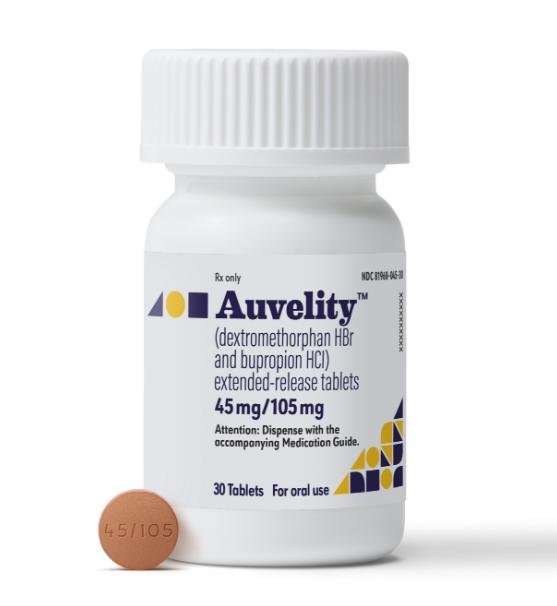Bupropion/dextromethorphan and Alcohol/Food Interactions
There are 2 alcohol/food/lifestyle interactions with bupropion / dextromethorphan.
Bupropion Food
Moderate Food Interaction
Consumer information for this interaction is not currently available.
GENERALLY AVOID: Excessive use or abrupt discontinuation of alcohol after chronic ingestion may precipitate seizures in patients receiving bupropion. Additionally, there have been rare postmarketing reports of adverse neuropsychiatric events or reduced alcohol tolerance in patients who drank alcohol during treatment with bupropion. According to one forensic report, a patient died after taking large doses of both bupropion and alcohol. It is uncertain whether a drug interaction was involved. Single-dose studies in healthy volunteers given bupropion and alcohol failed to demonstrate either a significant pharmacokinetic or pharmacodynamic interaction.
MANAGEMENT: The manufacturer recommends that alcohol consumption be minimized or avoided during bupropion treatment. The use of bupropion is contraindicated in patients undergoing abrupt discontinuation of alcohol.
References
- Posner J, Bye A, Jeal S, Peck AW, Whiteman P (1984) "Alcohol and bupropion pharmacokinetics in healthy male volunteers." Eur J Clin Pharmacol, 26, p. 627-30
- Ramcharitar V, Levine BS, Goldberger BA, Caplan YH (1992) "Bupropion and alcohol fatal intoxication: case report." Forensic Sci Int, 56, p. 151-6
- Hamilton MJ, Bush MS, Peck AW (1984) "The effect of bupropion, a new antidepressant drug, and alcohol and their interaction in man." Eur J Clin Pharmacol, 27, p. 75-80
- (2001) "Product Information. Wellbutrin (bupropion)." Glaxo Wellcome
Dextromethorphan Food
Moderate Food Interaction
Consumer information for this interaction is not currently available.
GENERALLY AVOID: Alcohol may potentiate some of the pharmacologic effects of CNS-active agents. Use in combination may result in additive central nervous system depression and/or impairment of judgment, thinking, and psychomotor skills.
MANAGEMENT: Patients receiving CNS-active agents should be warned of this interaction and advised to avoid or limit consumption of alcohol. Ambulatory patients should be counseled to avoid hazardous activities requiring complete mental alertness and motor coordination until they know how these agents affect them, and to notify their physician if they experience excessive or prolonged CNS effects that interfere with their normal activities.
References
- Warrington SJ, Ankier SI, Turner P (1986) "Evaluation of possible interactions between ethanol and trazodone or amitriptyline." Neuropsychobiology, 15, p. 31-7
- Gilman AG, eds., Nies AS, Rall TW, Taylor P (1990) "Goodman and Gilman's the Pharmacological Basis of Therapeutics." New York, NY: Pergamon Press Inc.
- (2012) "Product Information. Fycompa (perampanel)." Eisai Inc
- (2015) "Product Information. Rexulti (brexpiprazole)." Otsuka American Pharmaceuticals Inc
Bupropion/dextromethorphan drug interactions
There are 637 drug interactions with bupropion / dextromethorphan.
Bupropion/dextromethorphan disease interactions
There are 7 disease interactions with bupropion / dextromethorphan which include:
- suicidality
- seizure disorders
- angle closure glaucoma
- liver disease
- mixed/manic episode
- renal dysfunction
- weight loss
More about bupropion / dextromethorphan
- bupropion/dextromethorphan consumer information
- Check interactions
- Compare alternatives
- Reviews (100)
- Side effects
- Dosage information
- During pregnancy
- Drug class: miscellaneous antidepressants
- En español
Related treatment guides
Drug Interaction Classification
| Highly clinically significant. Avoid combinations; the risk of the interaction outweighs the benefit. | |
| Moderately clinically significant. Usually avoid combinations; use it only under special circumstances. | |
| Minimally clinically significant. Minimize risk; assess risk and consider an alternative drug, take steps to circumvent the interaction risk and/or institute a monitoring plan. | |
| No interaction information available. |
Further information
Always consult your healthcare provider to ensure the information displayed on this page applies to your personal circumstances.


